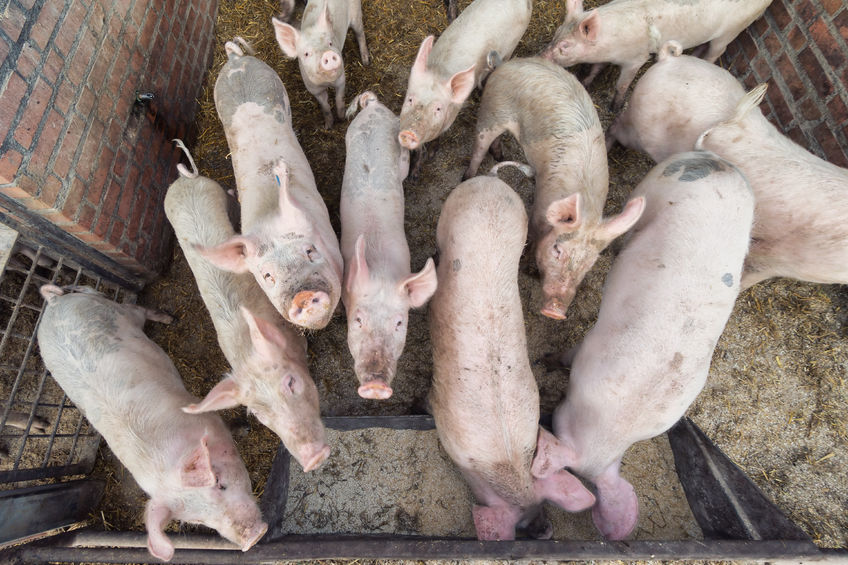Brexit: UK pig industry worries about potential US free trade deal

Nine months on from the Brexit vote the British pig industry has found itself thriving, but there are worries amongst farmers that a possible free trade deal with the US could be on the cards.
Speaking at their northern regional meeting, National Pig Association chairman Richard Lister said that ‘Brexit has been pretty positive for the pig industry’.
Just last year the British pig industry was enduring its toughest period for over half a decade, but thanks to the weakening of the pound and strengthening of foreign markets, the industry is soaring.
But as Theresa May plots her escape from the EU, there are concerns amongst some pig farmers that a free trade deal with the US could be damaging.
There are worries that an influx of cheap and lower welfare meat could substantially disadvantage British pig farmers.
The association wants to see strict labelling laws put in place to provide clarity for consumers over differences in production standards.
Richard Lister also said that ‘free trade with Europe is a very important deal for us’ as he underlined that the NPA were still hopeful that a free trade deal with the EU could be reached.
‘Exciting but at the same time also worrying’, was Richard’s response when asked about the year ahead. He also said it was time to move away from the ‘doom sayers’ and negativity and inject some positivity to get the best deal for everyone.
'Absolutely vital'
Richard Lister said: “A free trade deal with the EU is absolutely vital for the pig sector. Tariffs on pork exports, for example, of 45p/kg on carcases or 131p/kg for processed hams, would cripple our export trade, slash profitability and export production overseas, particularly if equivalent tariffs were not levied on imports into the UK.
“If we leave without a trade deal, sensible transitional arrangements must be put in place.”
A great concern among farmers is the prospect of new trade deals that would expose UK consumers and producers to cheaper pork imports from the likes of the US, Canada and Brazil, where health and welfare standards are often considerably lower than the UK's.
The recent Brazilian meat scandal has highlighted the dangers in any potential new trade deals.
Mr Lister continued: “We don’t want imported meat produced to lower hygiene, welfare and traceability standards posing a threat to consumers and undercutting UK producers. We don’t want pork from the US, for example, from pigs reared using the growth promoter ractopamine or from sows reared in stall systems outlawed in the UK since the late-1990s.”
The UK pig industry exported more than 206,000 tonnes of pigmeat, worth £252 million, in 2017, nearly 60% of which went to or via the EU.








